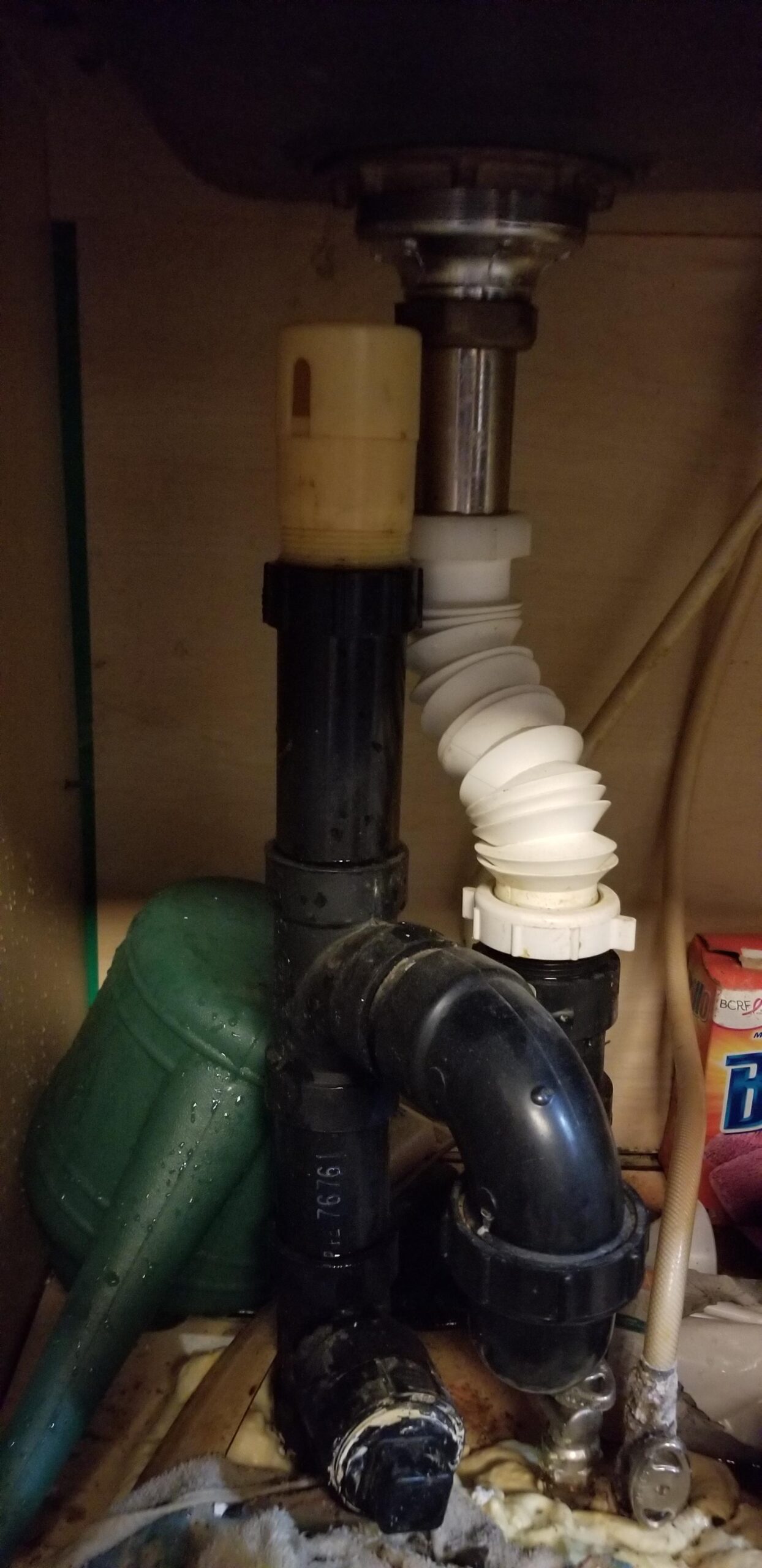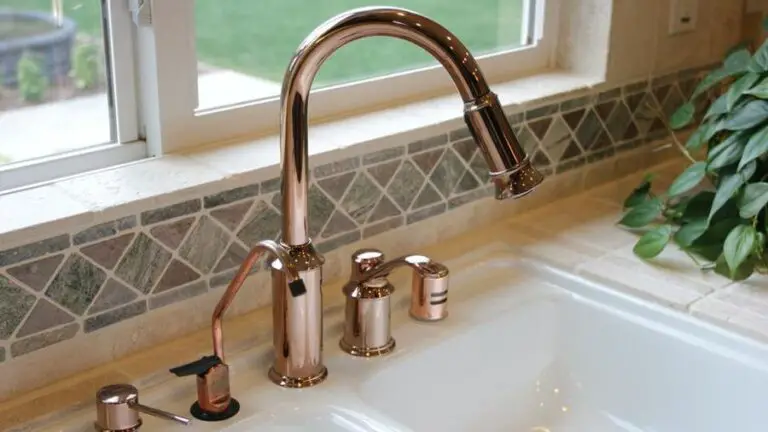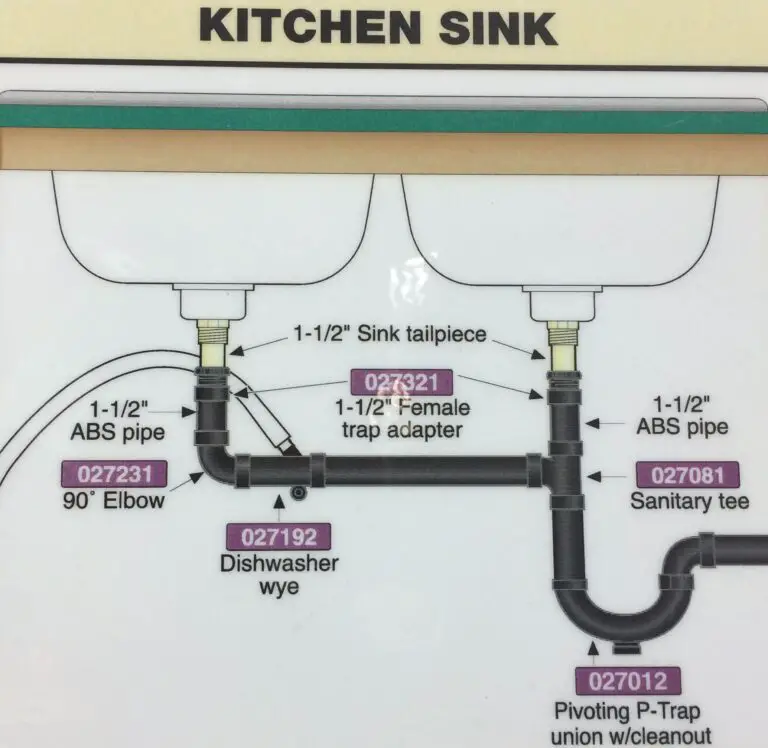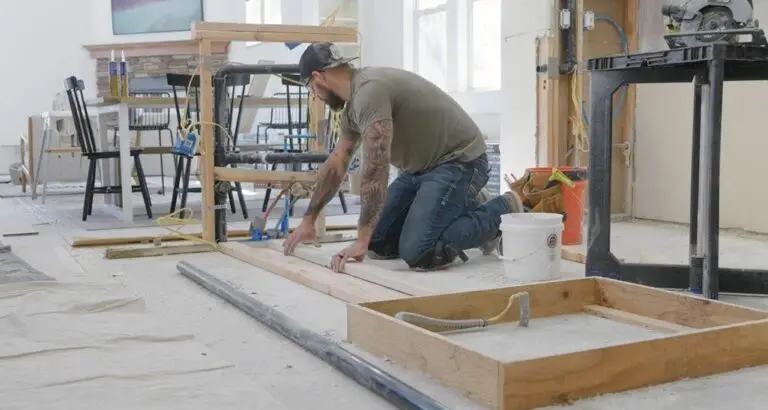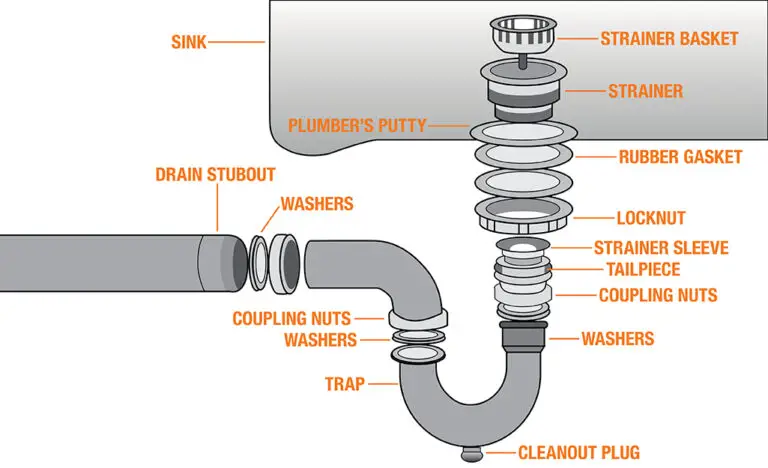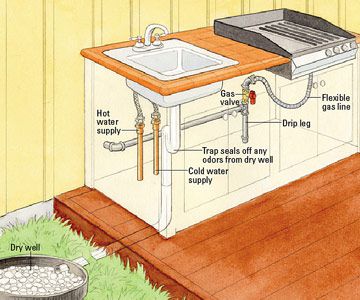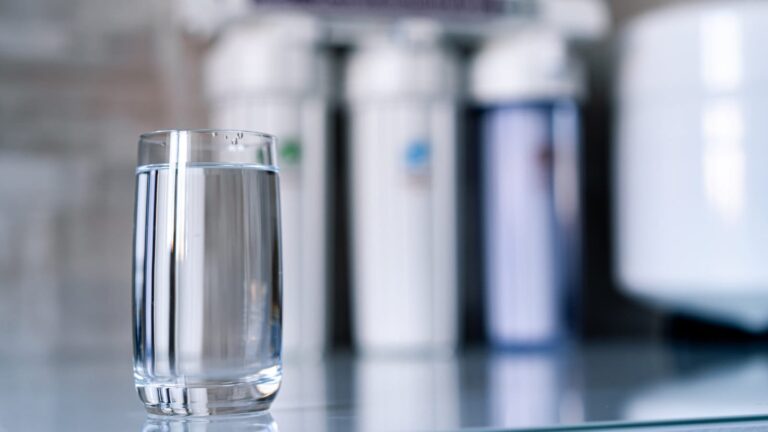Mobile Home Kitchen Sink Plumbing Solutions for Easy Maintenance
Mobile home kitchen sink plumbing involves unique challenges due to the compact space and different materials used. Proper installation ensures efficient water flow and prevents leaks.
Mobile homes, unlike traditional houses, have distinct plumbing requirements. The limited space in mobile homes demands specific plumbing fixtures and techniques. Kitchen sinks in mobile homes often use flexible plastic pipes instead of rigid metal ones. This flexibility helps accommodate the mobile home’s movement.
Regular maintenance and proper installation are crucial to avoid common issues like leaks and clogs. Understanding the unique needs of mobile home plumbing ensures a functional and efficient kitchen sink. Proper plumbing also enhances the longevity of your mobile home’s kitchen fixtures.
Introduction To Mobile Home Kitchen Sink Plumbing
Mobile home kitchen sink plumbing can be different from traditional homes. Understanding these differences can help you maintain your plumbing system. Proper maintenance keeps your kitchen sink working smoothly.
Unique Challenges In Mobile Homes
Mobile homes often have limited space. This makes plumbing a bit tricky. Pipes might be smaller, and they can be in hard-to-reach places. Mobile homes can move, so pipes need to be flexible.
Water pressure can vary in mobile homes. It might be lower than in traditional homes. This can affect the sink’s performance. Drainage systems can also be different. They might require more frequent cleaning.
Benefits Of Proper Maintenance
Regular maintenance keeps your kitchen sink in good condition. It helps prevent clogs and leaks. Clean pipes ensure a smooth water flow. This saves you time and money on repairs.
Well-maintained plumbing improves water efficiency. This is important in mobile homes. Efficient water use helps reduce utility bills. It also ensures a reliable water supply.
Proper maintenance extends the life of your plumbing system. This means fewer replacements and a more reliable kitchen sink. A well-maintained sink can add value to your mobile home.
| Challenge | Benefit of Maintenance |
|---|---|
| Limited Space | Prevents clogs and leaks |
| Flexible Pipes | Ensures smooth water flow |
| Variable Water Pressure | Improves water efficiency |
| Different Drainage Systems | Extends plumbing system life |
Types Of Kitchen Sinks For Mobile Homes
Choosing the right kitchen sink for your mobile home is crucial. It affects both functionality and aesthetics. Various types are available, each with its own benefits and features. Understanding these options helps you make an informed decision.
Materials And Designs
Kitchen sinks come in different materials and designs. Each material offers unique advantages.
- Stainless Steel: Durable and resistant to stains and heat. It is a popular choice.
- Composite Granite: Offers a luxurious look. It is scratch and chip-resistant.
- Porcelain: Classic and elegant. It is easy to clean but may chip over time.
As for designs, you have several choices:
- Single Bowl: Ideal for small spaces. It offers a large, uninterrupted workspace.
- Double Bowl: Provides flexibility. One bowl can be used for washing, the other for rinsing.
- Farmhouse: Features a deep basin. It is perfect for large pots and pans.
Standard Sizes And Compatibility
Kitchen sinks for mobile homes come in standard sizes. Ensuring compatibility with your countertop is important.
| Sink Type | Standard Size |
|---|---|
| Single Bowl | 25-27 inches |
| Double Bowl | 33-36 inches |
| Farmhouse | 30-33 inches |
Measure your countertop before purchasing a sink. This ensures it fits perfectly.
Also, consider the depth of the sink. Standard depths range from 8 to 10 inches. Deeper sinks are better for washing large items.
Essential Tools For Plumbing Maintenance
Maintaining the plumbing in your mobile home kitchen sink is crucial. Having the right tools can save you time and money. This guide will detail the essential tools you need for efficient plumbing maintenance.
Basic Toolkit Essentials
A basic toolkit is a must for any plumbing job. It includes tools that are commonly used for various tasks.
- Adjustable Wrench: This tool is versatile and can fit different sizes of nuts and bolts.
- Screwdrivers: Both flathead and Phillips screwdrivers are necessary for tightening or loosening screws.
- Pliers: Use these for gripping and turning objects.
- Pipe Tape: Also known as Teflon tape, it is essential for sealing pipe threads.
- Bucket: Always have a bucket to catch water and avoid messes.
Specialized Plumbing Tools
For more specific plumbing tasks, specialized tools are necessary. These tools make your work more efficient and effective.
- Pipe Wrench: This tool is designed to grip and turn pipes.
- Plumber’s Snake: Use this tool to clear out clogged drains.
- Basin Wrench: This tool is used for tightening or loosening nuts under the sink.
- Tube Cutter: Ideal for cutting pipes cleanly and precisely.
- Plunger: A plunger is essential for clearing minor clogs in the sink.
Having these tools on hand will help you tackle any plumbing issue that arises. Whether it’s a basic repair or a more complicated job, being prepared is key.

Credit: www.youtube.com
Common Plumbing Issues And Fixes
Mobile home kitchen sink plumbing can present unique challenges. Understanding common plumbing issues and knowing how to fix them can save time and money. Here, we explore some frequent plumbing problems and practical solutions.
Leak Detection And Repair
Leaks are common in mobile home kitchen sinks. Detecting a leak early can prevent water damage and mold growth. To check for leaks, look for water stains or puddles under the sink.
If you find a leak, tighten the connections first. Use a wrench to ensure all fittings are secure. If the leak persists, you may need to replace the faulty parts. Plumbers tape can help seal minor leaks around threaded connections.
For larger leaks, replacing the pipes might be necessary. Use PVC or PEX pipes for durability. Always turn off the water supply before starting any repairs.
Clog Removal Strategies
Clogs in mobile home kitchen sinks can be troublesome. A blocked drain can cause slow drainage or standing water. There are several ways to remove clogs effectively.
- Plunger: Use a plunger to dislodge minor clogs. Ensure a tight seal over the drain and push firmly.
- Drain Snake: A drain snake can reach deeper clogs. Insert it into the drain and twist to break up the blockage.
- Boiling Water: Pour boiling water down the drain to dissolve grease and soap scum.
- Baking Soda and Vinegar: Mix baking soda and vinegar, then pour it down the drain. This combination can break down clogs naturally.
If these methods fail, consider using a chemical drain cleaner. Use it as a last resort due to potential pipe damage. Always follow the product instructions carefully.
Installing New Sinks And Faucets
Installing new sinks and faucets in a mobile home can seem challenging. But with a bit of guidance, you can do it yourself. This guide will help you every step of the way. Follow these steps to ensure your kitchen sink plumbing is perfect.
Step-by-step Installation Guide
Follow this easy guide to install your new sink and faucet:
- Turn off the water supply: Locate the water valves under the sink. Turn them clockwise to shut off the water.
- Remove the old sink and faucet: Disconnect the water supply lines and drain pipes. Use a wrench to remove the old faucet.
- Prepare the new sink: Place the new sink in the countertop cut-out. Ensure it fits snugly. Use plumber’s putty around the edges.
- Install the new faucet: Insert the faucet into the sink holes. Secure it with mounting nuts. Tighten them using a wrench.
- Connect the water supply lines: Attach the hot and cold water supply lines to the faucet. Use a wrench to ensure they are tight.
- Reconnect the drain pipes: Connect the sink drain to the P-trap. Tighten all connections to prevent leaks.
- Turn on the water supply: Open the water valves. Check for any leaks and ensure the faucet is working properly.
Tips For A Leak-free Setup
To ensure a leak-free setup, follow these tips:
- Use plumber’s tape: Wrap plumber’s tape around the threads of the water supply lines. This helps prevent leaks.
- Tighten connections properly: Use a wrench to tighten all connections. But be careful not to overtighten and damage the fittings.
- Check for leaks: After turning on the water supply, inspect all connections. Look for any signs of water leakage.
- Seal the edges: Use a silicone sealant around the edges of the sink. This prevents water from seeping under the countertop.
Installing new sinks and faucets in a mobile home can be a rewarding project. Follow these steps and tips for a successful installation.

Credit: www.pinterest.com
Proper Drainage System Maintenance
Maintaining the drainage system in your mobile home kitchen is crucial. This ensures smooth operation and prevents costly repairs. Regular maintenance keeps the plumbing system efficient and extends its lifespan.
Cleaning And Unclogging
One of the primary tasks is regular cleaning. Clean your kitchen sink drain weekly to prevent buildup. Use a mixture of baking soda and vinegar for a natural cleaning solution.
Clogs are common but easy to handle. Start by removing any visible debris. Use a plunger to dislodge minor clogs. For stubborn clogs, a drain snake can be effective. Avoid chemical drain cleaners as they can damage pipes.
Preventative Measures
Preventative maintenance is essential. Install a sink strainer to catch food particles and debris. This simple tool can prevent most clogs.
Avoid pouring grease down the drain. Grease solidifies and causes blockages. Instead, dispose of grease in a container and throw it in the trash.
Regularly inspect plumbing connections under the sink. Look for leaks or loose fittings. Tighten or replace parts as necessary. This proactive approach helps maintain the integrity of your plumbing system.
Use hot water to flush the drain weekly. Hot water helps dissolve any grease or soap buildup. This keeps the drain clear and free-flowing.
| Task | Frequency | Tools Needed |
|---|---|---|
| Clean drain | Weekly | Baking soda, vinegar |
| Check for clogs | As needed | Plunger, drain snake |
| Inspect plumbing | Monthly | Wrench |
| Flush with hot water | Weekly | Hot water |
- Install a sink strainer to catch debris.
- Avoid pouring grease down the drain.
- Inspect plumbing connections regularly for leaks.
- Flush the drain with hot water weekly.
Upgrading Plumbing Systems
Upgrading the plumbing system in your mobile home kitchen can be a great investment. It improves functionality and can add value to your home. Let’s explore when and how to upgrade your plumbing systems.
When To Upgrade
Frequent leaks are a clear sign that it’s time for an upgrade. Leaks can cause severe damage if left unchecked.
Low water pressure can make daily tasks harder. Upgraded pipes can improve water flow.
Rusty or discolored water indicates corroded pipes. Corrosion can lead to health issues and should be addressed promptly.
Outdated materials like galvanized steel are prone to issues. Modern materials are more durable and efficient.
Choosing The Right Upgrades
Selecting the right upgrades ensures a long-lasting and efficient plumbing system. Here are some options to consider:
| Upgrade | Benefits |
|---|---|
| PVC Pipes | Resistant to corrosion and affordable. |
| PEX Tubing | Flexible, durable, and easy to install. |
| Copper Pipes | Long-lasting and reliable. |
| Water Filtration System | Improves water quality and health. |
Consult a professional plumber to assess your specific needs. A professional can provide tailored advice and ensure proper installation.
Consider your budget when planning upgrades. Some materials are more expensive but offer greater longevity and performance.
- Replace old fixtures with modern, water-saving options.
- Upgrade to a tankless water heater for energy efficiency.
- Insulate pipes to prevent freezing and improve energy efficiency.
Upgrading your mobile home kitchen sink plumbing can make a big difference. Choose the right upgrades for a hassle-free and efficient system.
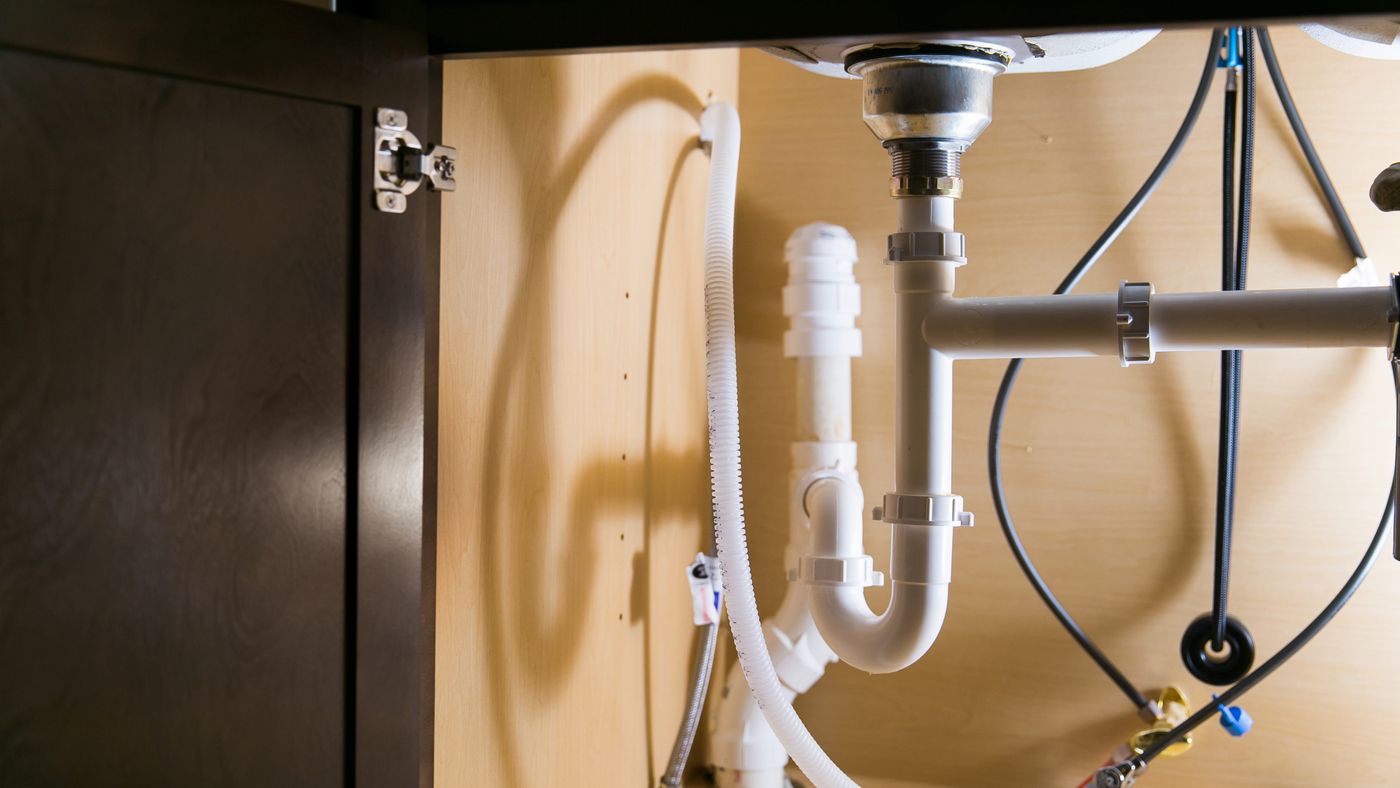
Credit: www.claytonhomes.com
Professional Help Vs. Diy
Mobile home kitchen sink plumbing can be a challenge. Deciding between professional help vs. DIY is crucial. This section helps you understand when to call a professional and provides resources for DIY enthusiasts. Each choice has its pros and cons. Understanding these can save you time and money.
When To Call A Professional
Some plumbing issues need a professional. Here are situations that require expert help:
- Major leaks: Large leaks can cause water damage. It’s best to call a plumber.
- Complex installations: Installing a new sink or moving plumbing lines? A professional can ensure it’s done right.
- Code compliance: Professionals know local plumbing codes. They ensure your plumbing meets standards.
- Persistent clogs: If a clog doesn’t clear with basic methods, you might need an expert’s tools and skills.
- Safety concerns: Working with plumbing can involve risks. Professionals have the right equipment and training.
Resources For Diy Enthusiasts
For those who prefer the DIY route, many resources are available:
- Online tutorials: Websites like YouTube offer step-by-step guides.
- Books: Plumbing manuals provide detailed instructions and tips.
- Hardware stores: Local stores often offer workshops and advice.
- Forums: Online communities can offer advice and support from fellow DIYers.
- Tool rental services: Rent specialized tools for a fraction of the purchase cost.
DIY can be rewarding and cost-effective. But knowing your limits is essential. Small repairs and simple tasks are often suitable for DIY. But complex issues should be left to professionals.
Frequently Asked Questions
Is Mobile Home Plumbing Different?
Yes, mobile home plumbing differs from standard homes. It uses flexible pipes and requires specific fittings. Maintenance can be more frequent.
How Do You Unclog A Kitchen Sink In A Mobile Home?
Use a plunger to dislodge debris. Pour boiling water down the drain. Use a drain snake to remove blockages. Apply baking soda and vinegar, then flush with hot water.
How To Install A Kitchen Sink In A Mobile Home?
To install a kitchen sink in a mobile home, first, turn off the water supply. Remove the old sink. Place the new sink in the cutout, securing it with clips. Connect the plumbing and ensure there are no leaks. Turn on the water and test the sink.
What Size Is A Mobile Home Drain Pipe?
A mobile home drain pipe is typically 3 inches in diameter. This size is standard for most mobile homes.
How To Fix A Leaking Mobile Home Sink?
First, turn off the water supply. Then, tighten any loose connections or replace damaged parts.
Conclusion
Properly maintaining your mobile home kitchen sink plumbing can prevent costly repairs. Regular checks and basic upkeep are essential. With these tips, you can ensure smooth plumbing operations. Keep your mobile home kitchen sink in top condition for a hassle-free living experience.
Enjoy a functional and efficient kitchen space.


